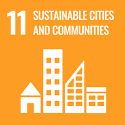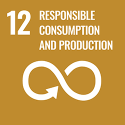Objectives and targets
Key objective: To reduce waste mass by 50% by 2030 (Measured on 2016/17-2018/19 average baselines).
Interim targets: To reduce waste mass by 40% by 2025.
Response lead: Estates and Campus Services; Commercial Services
Our principal aim in sustainable waste and recycling is to minimise the environmental impact of waste by promoting a circular economy and better separation of waste, reuse, recycling, and reprocessing.
Key objective: To reduce waste mass by 50% by 2030 (Measured on 2016/17-2018/19 average baselines).
Interim targets: To reduce waste mass by 40% by 2025.
Response lead: Estates and Campus Services; Commercial Services


The key message here is that we need to avoid (or minimise wherever possible) the purchase of unnecessary products or services. Waste reduction is critically important to conserve finite resources. It also reduces associated greenhouse gas emissions, pollutants, and financial costs. By adopting a circular economy, we can address our ‘use it once and throw away’ lifestyles. This thinking underpins the steps we have taken thus far to reduce waste, conserve the earth’s scarce resources, and ultimately to provide employment in the region by sourcing more local products and services.
We also recognise, however, that we need to take further action to reduce waste levels. General waste represents approximately 65% of the University’s total waste (see Figure 3) and we are encouraging staff and students to think carefully about the disposal of used food and other waste. Improved information and signage, for instance, will help to reduce the amount of spoiled recyclable material that ends up as waste due to contamination by food or liquid. Currently, all our commercial food waste is sent to an anaerobic digester as part of our 100% landfill avoidance strategy. Cooking oil is collected and turned into biofuel, and coffee grounds are used as composting material on campus. We are also exploring with regional partners the use of food waste to generate power.
Improved waste separation facilities and campaigns to increase recycling rates will continue to feature in our strategy. Across our catering outlets, we are introducing more environmentally friendly coffee cups and take-away options, removing disposable cutlery and plastic straws, and eliminating plastic bags. We are working with our catering suppliers to remove all single-use plastics where possible. We have also taken steps to eliminate all single-use plastics in laboratories by 2025.
As a consequence of our waste reduction strategy, we have reduced overall waste mass (i.e., the amount of material thrown away) by 32.3% since 2016-17. Over the same period, the proportion of waste recycled has increased from 26.1% to 29.5%, while incinerated waste (general non- recyclable waste) has reduced from 71.7% to 65.5%.
Through its development of the ‘Green and Blue Space’, our Students’ Union recycles household items from student residences and foodstuffs. This has resulted in the recycling of approximately 6 tonnes of waste materials annually. Surplus or unwanted food stuffs are donated to local food banks for distribution in the local community. The Community Fridge and Pantry within the Green and Blue space is available to students and staff and is supported by Stirling Alumni through The Stirling Fund, the Community Food Initiative aims to alleviate food poverty and financial stress, whilst encouraging food sustainability and reducing waste. Staff and Students are encouraged to bring their own containers and including vegan pick n mix. Anyone can donate to the initiative by delivering directly.
We track waste from both food, glass-recycling and commercial and industrial waste as part of our statutory Public Body Climate Change annual report to the Scottish Government and more regularly within year via committees and groups. Our management system enables the measurement of waste data across sites within campus such as halls of residence, the main campus and our hotel on site.
The University regularly monitors and tracks the amount of waste generated and recycled as part of its obligation to the Higher Education Statistics Agency (HESA) annual estates management record. Waste data is further broken down into food, plastics, furniture, glass etc in monthly reports from the management system and used to track our commitment to landfill avoidance.
Where possible our policies for plastic reduction and disposable items extend to our suppliers as set out in our emerging procurement strategy. We are committed to identifying high sustainability impact suppliers and categories and will seek to employ the latest APUC tools and guidance to further improve supply chain monitoring and performance. The University implemented a new procurement system recently which has enabled monitoring at a more granular level. Our ‘use your on cup’ campaign in one month alone saved 8,462 cups and plastic lids for example.